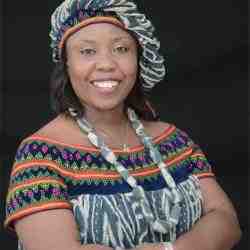Introduction
With a developed set of interventions to prevent violence before it ever occurs, Gary Barker is changing the culture of violence in marginalized communities in Brazil and around the world.
The New Idea
Gary is changing the culture of violence in marginalized communities—favelas or slums, in Brazil— by “going upstream” to address the root causes of violence, rather than waiting to address the effects of violence after it has occurred. To identify the causes, Gary tries to understand why some people are exceptions to cultural norms—exceptions such as men who don’t engage in traditional male machismo, which often encourages violent behavior. Gary then designs and implements a set of community interventions based on these exceptions. Through group classes, community campaigns with carefully crafted messaging, training, and mentorship, Gary has found that he can significantly reduce serious violence-related problems in the favelas where he works. For example, one year after he first implemented his program to address male machismo with 750 youth from three favelas, behavior such as physical abuse toward girlfriends, and being infected with STDs decreased by 50 percent.
Gary currently operates two major programs. The first, based on the premise that one cause of violence in marginalized communities is men’s attitudes and lack of gender equity, is more advanced and at the stage of dissemination. Gary has recently turned to a different source for a culture of violence in favelas; how children are parented and the effect of physical violence against children. Gary is currently designing and measuring the impact of pilot interventions in four communities of Rio de Janeiro and intends to prevent children from becoming street children, gang members, and drug traffickers—falling in to a cycle of violence in their communities.
Gary knows he can use research to maximize his impact in two critical ways: 1) To identify where he can target the most effective preventative intervention, as discussed above and 2) To measure his impact as a powerful vehicle to spread his idea. Gary’s organization, Promundo, creates toolkits for other COs and public ministries to replicate his interventions; his programs on men’s attitudes are currently being implemented through an international network of organizations.
The Problem
Intra-family violence in marginalized communities in Brazil is seen as a natural form of conflict resolution. It is a complex phenomenon, involving cultural values, expectations of gender roles, social inequalities, and abuse of power relations. In most cases, victims of domestic violence are women and children who suffer lasting physical, emotional, and psychological damage. Intervening in domestic violence is difficult; in Brazilian culture it’s common to say, “What happens between four walls is a private matter and no one has to intervene.”
According to Human Right Watch, domestic violence is the greatest cause of women’s injuries throughout the world, and the principal cause of death of women between the ages of 14 and 44 years. In Brazil, 15 percent of women report having suffered from domestic violence, according to recent Senate data (2007).
According to the World Health Organization, around 40 million children worldwide under 15 years of age suffer abuse and negligence. Gary’s research has shown that 60 to 80 percent of parents in low-income communities in Brazil use violence against their children. Independent research has shown that children who suffer from aggression tend to become aggressive adults, offenders, or frustrated, insecure adults. Exposure to violence in the home, as a victim or spectator, is linked to the chance of that person becoming a victim or perpetuator of violence as a youth or adult. In Brazil, approximately 80 percent of youth offenders were victims of violence and neglect during childhood, and 80 percent of child prostitutes suffered some form of abuse by a family member. In Rio de Janeiro, violence in the home and family conflicts are the causes of approximately 60 percent of children abandoning their families to live on the streets. This contributes to a culture of violence in the favelas, since street children are more likely to get involved in the drug trade, armed violence, and prostitution.The new Brazilian Civil Code makes a child’s physical integrity the responsibility of his/her family and forbids severe physical punishment but allows for moderate punishment (which does not leave visible marks). In general, the issue of physical punishment of children is difficult to approach, as intervening can be construed as interference in family life. Current interventions in the field focus on punishing parents, supporting victims, or dealing with serious injuries caused by domestic violence—all problems that occur after violence has happened. The focus has been on fixing problems because it has been difficult to imagine preventing them.
The Strategy
At the heart of Gary’s strategy is identifying the causes of the culture of violence in the favelas and designing a set of interventions to change those factors and thereby, prevent violence. Gary believes the solutions to these problems can be found within the communities; basing his interventions on practices and attitudes of community members who are exceptions to the rule. Because he is passionate about spreading his ideas as widely as possible, Gary uses impact measurements to convince COs, government ministries, and multilateral institutions to implement his programs through an easily replicated toolkit of systematized interventions.
Gary’s organization, Promundo, has several programs, which can be divided in two major categories—“Gender and Health” and “Participation and Human Development.” “Gender and Health”, Gary’s first program, has enabled him to develop and refine his methodology. The program stems from Gary’s realization, through his research, that one major cause of domestic and intra-family violence is lack of gender equality and male attitudes towards women. Gary’s research showed that perhaps 10 percent of males in his survey group in the favelas did not have traditional machismo attitudes. Gary used the set of factors that influenced this small segment of the population to design a set of interventions for young men aged 15 to 24 in the favelas. Educational workshops promote discussion about how young men are socialized and how to engage in behavior that empowers women. Community campaigns, whose marketing materials are developed by young men and women within the communities, promote a new identity for young men as “cool,” responsible, and open to sharing with their partners. Mentorships offer young men new types of father figures through friends and relatives. Throughout these activities, the key to changing a culture of violence has been engaging the community to own the problem, the interventions, and the follow-up. Gary taps in to the subgroup of men without traditional machismo behavior to become agents for change in communities and makes his campaigns appealing and fun through creative and upbeat advertising.
Through his first intervention with 750 young men in three favelas, Gary proved that men can be trained to have different attitudes about women and engage in less violent behavior, drug abuse, and risky sexually behavior that leads to the spread of STDs and HIV/AIDS. After one year, these youth reduced behavior such as beating their girlfriends and becoming infected with sexually transmitted diseases by 50 percent. Since then, Gary’s research has continued to show that young men participating in his community programs search for non-violent alternatives to resolve conflict, take better care of their bodies (including using condoms), engage in more dialogue with their partners about sexual health, and are more involved in caring for their children. Gary has measured these changes through a tool he developed called the “Gender Equitable Men’s (GEM) Scale.” It assesses the behavior and attitudes of young men surrounding cultural gender norms.
Gary incorporated results measured by the GEM Scale to spread information about his work and research through a combination of media targeted at the general public, technical publications, training courses for communities, COs, governments and international organizations, and action and advocacy publications recommending changes in public policy. Organizations in other countries began asking Promundo for trainings. As requests increased, Gary realized these trainings were not the best means to create lasting change. He made more intensive technical assistance partnerships with only organizations that met a set of rigorous criteria, including commitment to follow-up. Today, Promundo offers technical assistance through systematized toolkits and training to partner organizations in twenty countries, including government, non-government, and multilateral organizations, working on health and gender equity.
Promundo continues to spread its programs for men and develop new programs under the “Gender and Health” rubric. The new programs include a similar project to engage young women to reflect on their socialization and an initiative to reduce homophobia and promote respect for sexual diversity among youth. Gary is now also focusing on developing, measuring, and spreading a second program to change the culture of violence in the favelas—“Participation and Human Development.” This program grew out of “Gender and Equality,” for it stems from Gary’s understanding of both the role of the father in children’s development and the link to violence between partners and violence against their children. By intervening in how children are raised and parented, Gary hopes to prevent children from falling in to a culture of violence in their communities.
“Participation and Human Development” is currently in a pilot phase, having worked directly with 15,000 people in four favelas of Rio de Janeiro. Gary began “Participation and Human Development” by again using local solutions, or “voices of resistance to the violence,” to structure his interventions. The focus is on preventing physical violence against children and promoting the full development of children and adolescents by assessing their potential and ability to participate in their upbringing and development.
Gary believes the physical punishment of children is rooted, among other factors, in a totalitarian view of the role of parental power; a reproduction of a socially regulated behavior; a lack of information about effective disciplinary alternatives; and stress. He created an intervention to address these factors, “Children: Holders of Rights,” which targets parents, teachers, and community leaders in educational activities such as dramatization, brainstorming exercises, and reflections to encourage them to think critically about the consequences of physical and psychological punishment toward their children and to build awareness about positive methods to discipline children. Gary hopes the results of the program will help build advocacy tools to guide new programs and construct new public policies for the prevention of violence against children. Promundo is currently leading an alliance to campaign against physical punishment of children, joining key stakeholders such as COs, local and national government, multilateral organizations, and foundations. Promundo is also building an “Early Childhood Alliance” of similar organizations to create an information and advocacy center for early childhood issues in Brazil; fostering connections between practice, research, and public policy. Finally, Promundo is spreading awareness about the link between gender equity and violence against children through national media campaigns.
Gary knew that to maximize his impact, he needed to have a base within the favelas to implement his programs. He created a program to strengthen community-based supports for children and youth, creating centers, or hubs, within the favelas. These centers facilitate community members’ access to existing formal and informal resources for raising and educating children, such as daycare centers, COs, and community groups. Rather than focus on the risks children are exposed in the favelas, the Support Bases program focuses on raising children by supporting their potential and talents. Local Support Bases are found within the communities and through praxis they teach one of Gary’s primary messages—communities contain their solutions. Support Bases are currently being implemented in three communities in Rio de Janeiro.
As with the GEM Scale, Gary is developing a measurement tool for “Participation and Human Development,” creating a study called, “Parenting Styles” to assess the degree to which parents respect children’s rights to participation (in accordance with Article 12 of the UN Convention on the Rights of the Child). If the results are as good as expected from the pilot programs, Promundo will design a toolkit to systematize the methodology to be used by other organizations. Gary’s goal is to figure out how both “Gender and Equity” and “Participation and Human Development” can be packaged in one approach and more easily replicated.
In the long-term, Gary will use Promundo as a platform to identify, implement, and spread more “upstream” approaches to break the culture of violence in the favelas and in marginalized communities around the world. He thinks this will mean moving interventions earlier in childhood, rather than at 12 years, as Promundo’s programs currently do.
The Person
Born in the U.S. and son of a social worker, Gary learned early about the different relationships within a family. He has three adopted siblings who were abandoned for different reasons, such as foul treatment, abuse, and violence. This context stimulated Gary to want to better understand the processes that create dysfunctional family relationships. One of his brothers is from Guatemala and this prompted him to travel to the region. He fell in love with Latin America and began his studies.
After graduating in journalism, Gary completed a Master in Public Policy in the U.S. with a focus on the area of health and social services in developing countries. In 1985 he went to work with the Peace Corps in Honduras with street kids. He created a program for street educators trying to bring services and citizenship to the streets and questioning the purely aid and shelter movement in that country.
After four years in Honduras, Gary returned to the U.S. to work with Advocates for Youth, a social organization based in Washington concerned about youth development. Gary wanted to return to Latin America and open and an office in Colombia, where he began work with sexual orientation from the perspective of the life trajectory of the individual. At that time, he had identified the negative image of the male partner in the gender relationships. In 1992, he began coordinating research for Childhope and traveled to Brazil quarterly to develop it. He worked with different organizations that dealt with the theme of sexual violence and wanted to understand what happened before the children went to the streets. At this time he met his wife (a Brazilian). He received support from the McArthur Foundation to study gender issues focused on the young male.
Later, Gary decided to pursue a Doctorate degree in Chicago to understand how the socialization of gender worked from childhood (emphasis on young men) and the family dynamics which promoted violence against children. He researched violent and low-income communities in Chicago and Rio and was funded by the Open Society Institute (Soros Foundation).
In 1992 the Global Orphan Project was created to identify gaps in social services and the abuse of human rights which contributed to children (particularly HIV-AIDS) positive, being separated from their families. In 1997, the project decided to implement initiatives in Brazil and created the “Instituto Fundação Projeto Mundial para Órfãos Promundo”, (Global Orphan branch) in Brasilia. At this time, Gary had done work for UNICEF to estimate the number of children affected by AIDS in Brazil and was invited to work in the Institute. Seeing the positive impact of successful AIDS treatment policies implemented by the Brazilian government and that AIDS was not the main threat to the life of Brazilian children, Gary suggested the program’s initiatives focus on a holistic approach to children and youths, especially on their positive aspects and potentialities, as well as valuing the initiatives implemented in their communities.
Instituto Promundo was founded in 1999 to promote the strengthening of community support systems to children and youth and investigate how the promotion of gender equality could contribute to the health of children, youth, and their families. In addition to Promundo, Gary coordinates program H, which joins social Latin-American organizations and international Agencies (WHO, OPAS, IPPF/WHR, Durex Condoms, FNUAP, Engenderhealth e Horizons/Population Council) which work to promote gender equity and reduce violence among young men. Through the program, he has facilitated groups in Asia, Africa, Latin America, the U.S., and Europe on how to engage with young and adult men to promote gender equity and prevent violence against women. In 1999 he brought to Brazil, with Instituto Papai and the Noos Institute, the “White Lace” campaign (managed by men trying to end violence against women), originally created in Canada.
He conducted and published several studies about the matter of gender which became a reference for many countries. In 2005 he published, Dying to be Men: Youth, Masculinity and Social Exclusion. Gary is also the co-author of the book, The Gender Equitable Men Scale. The GEM Scale is currently used in more than fifteen countries.




